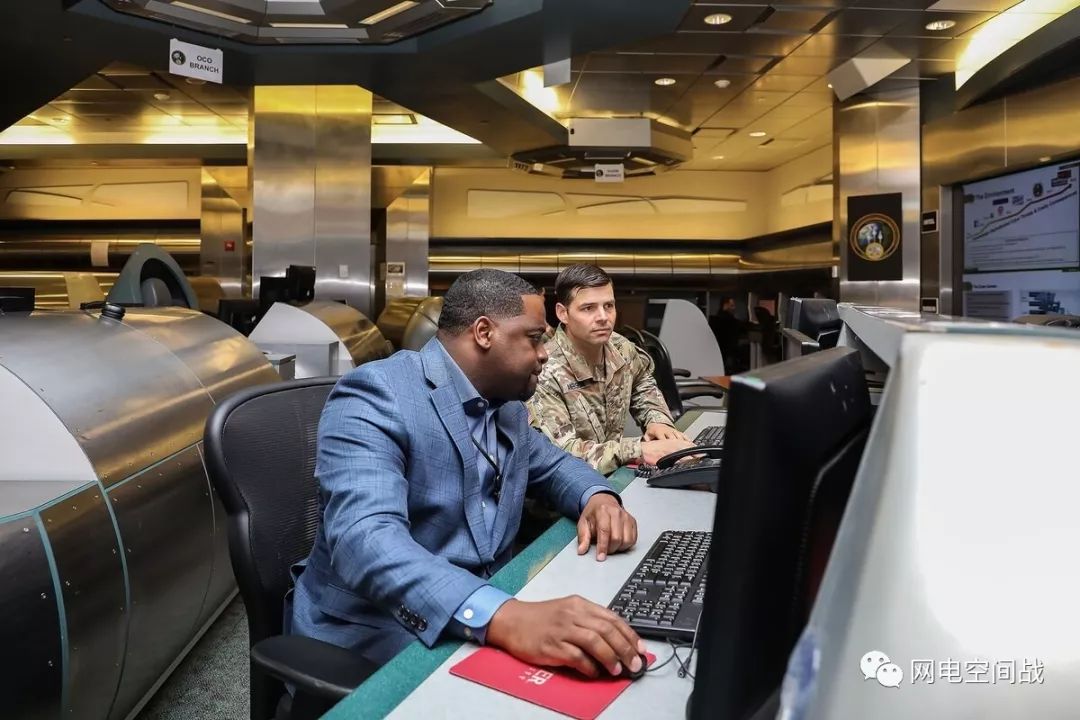作者:Mark Pomerleau

美国陆军为文职人员构建了一个正式的网络空间效应设施,与军人的设施类似(Joy Brathwaite /陆军)
五年前,美国陆军为其军职人员创建了一个网络分支机构。本月早些时候,美国陆军领导人已经签署了一份章程,为文职人员构建了类似的设施。
美国陆军已经正式使用“职业计划71”,即网络空间效应专业,新专业将为网络学科的文职人员培训、教育和职业发展提供集中性的措施。每个陆军文职人员使用的设施,无论是步兵还是装甲兵,都与相应的职业设施保持一致。
“这真的很重要。这使我们能够做的事情,基本上,[建立]一个正式的框架和计划,使我们能够招募、发展和留住那些专门从事网络空间效应的劳动力成员,“美国陆军网络司令部副司令Ronald Pontius
这些文职人员将参与陆军网络任务部队的常规工作,这些部队为美国网络司令部提供支持,并开展进攻和防御性网络空间任务。
美国陆军领导人认为这些文职职位现在是必要的,因为他们需要专门的培训,当下这些文职人员没有进行情报或信息战方面的培训。
“真的是需要有经过特殊训练的人 - 军人和文职人员 - 来做网络空间效应方面的工作,”美国陆军网络司令部指挥官Stephen Fogarty告诉记者。
美国陆军领导人不希望军职人员和文职人员之间存在什么差别。文职人员扮演着与军事同行相同的工作角色,无论是网络运营层面还是网络利用分析层面都是如此。然而,由于国际战争规则的限制,文职人员不能成为战争行动的“触发者”,这在网络环境中意味着他们无法领导网络任务部队。
但是,美国陆军的每支网络任务部队领导层中都有一名文职人员领导代表,随着美国陆军领导人的循环进出和职位轮换,这为网络空间部队提供了更大的连续性。
过去,无论是攻击型部队还是攻击性或防御性部队中的文职人员都接受了他们所从事的IT或情报工作角色的额外培训,这意味着他们还没有接受军事同行的全面培训。在实践中,这意味着他们在进攻和防守职能之间会受到一些限制。现在,文职人员将通过美国网络司令部的联合标准进行同样的职业培训,并与军方同行一起开展训练工作,因为这就是在课堂外运作的主要方式。
原文:
A new civilian cyber warfare position for theArmy
Five years ago, the Army created a cyber branch for its uniformed personnel. Earlier this month, service leaders signed a charter to create the equivalent for civilian employees.
Formally known as Career Program 71, cyberspace effects, the new positions will provide a centralized approach for civilian training, education and professional development in the cyber discipline. Each Army civilian position, be it infantry or armor, is aligned to a corresponding uniformed position.
These civilians will work on the Army cyber mission force teams that feed up to U.S. Cyber Command and conduct offensive and defensive cyberspace missions.
Army leaders argued the positions are necessary now because they require specialized training that personnel weren’t getting in intelligence or information warfare.
“Really it’s about having specially trained people – military and civilian – to do cyberspace effects,” Ronald Pontius, deputy to the commanding general at Army Cyber Command, told reporters.
Andricka Thomas, the program manager for the career program, said that these cyber effects civilians require extra training than was previously offered, adding that the new career centralizes their cyber effects training providing equity across the force.
Army leaders wants no distinction between uniformed and civilian personnel. The civilians perform the same work roles as their military counterparts be it an on-net operator or an exploitation analyst. Due to rules of international war, however, civilians can’t be the “trigger pullers,” which in the cyber context means they can’t lead the cyber mission force teams.
But, each cyber mission force team has a civilian deputy, which provide the teams greater continuity as military team leaders cycle in and out.
In the past, the civilians on either and offensive or defensive teams were given additional training from either their IT or intelligence work roles they came to, which meant they didn’t receive the holistic training of their military counterparts. In practice, this meant they were somewhat inhibited from being able to roll between offensive and defensive teams. Now the civilians will go through that same training pipeline with Cyber Command’s joint standards and train alongside their military counterparts, because that’s how operations work outside the classroom.
声明:本文来自网电空间战,版权归作者所有。文章内容仅代表作者独立观点,不代表安全内参立场,转载目的在于传递更多信息。如有侵权,请联系 anquanneican@163.com。
